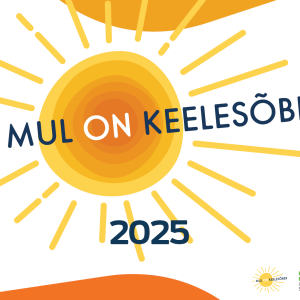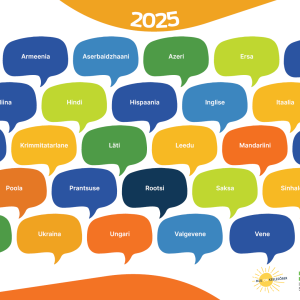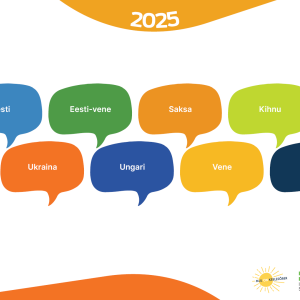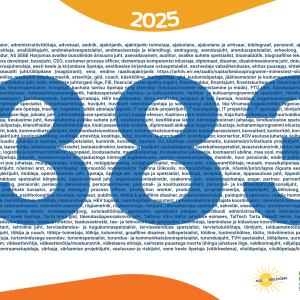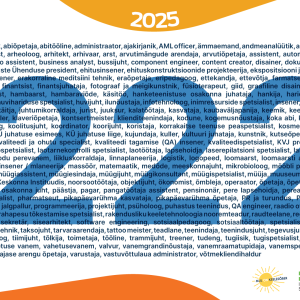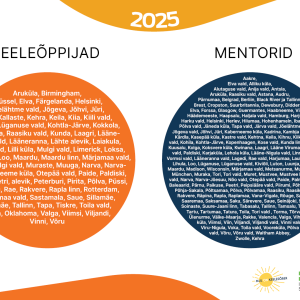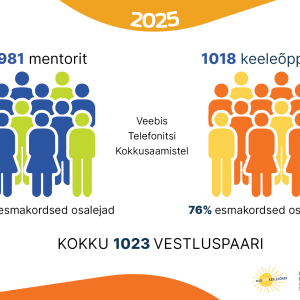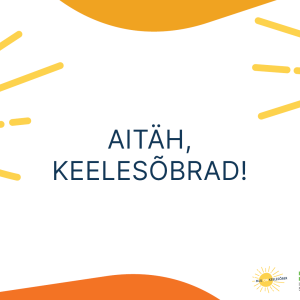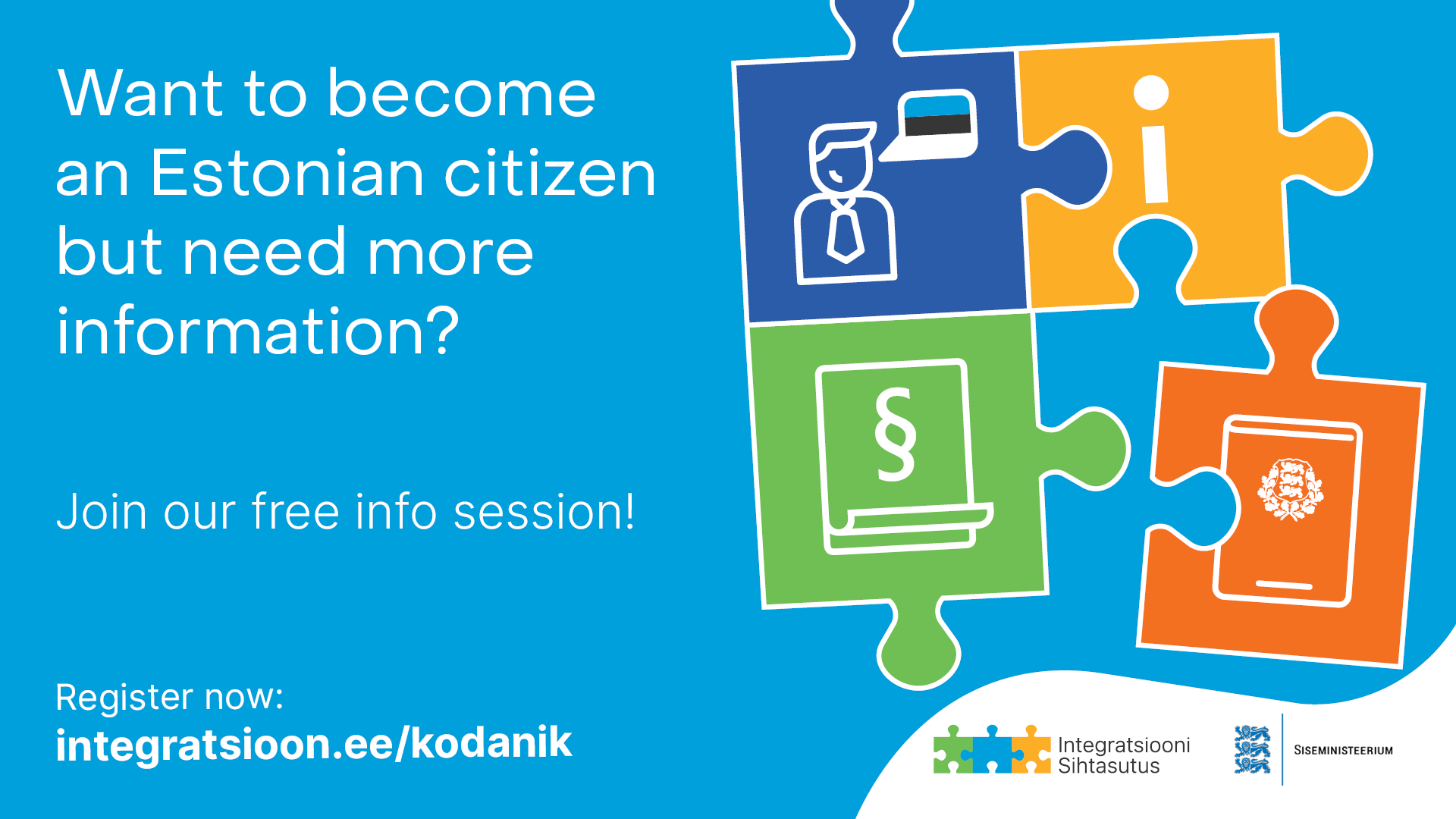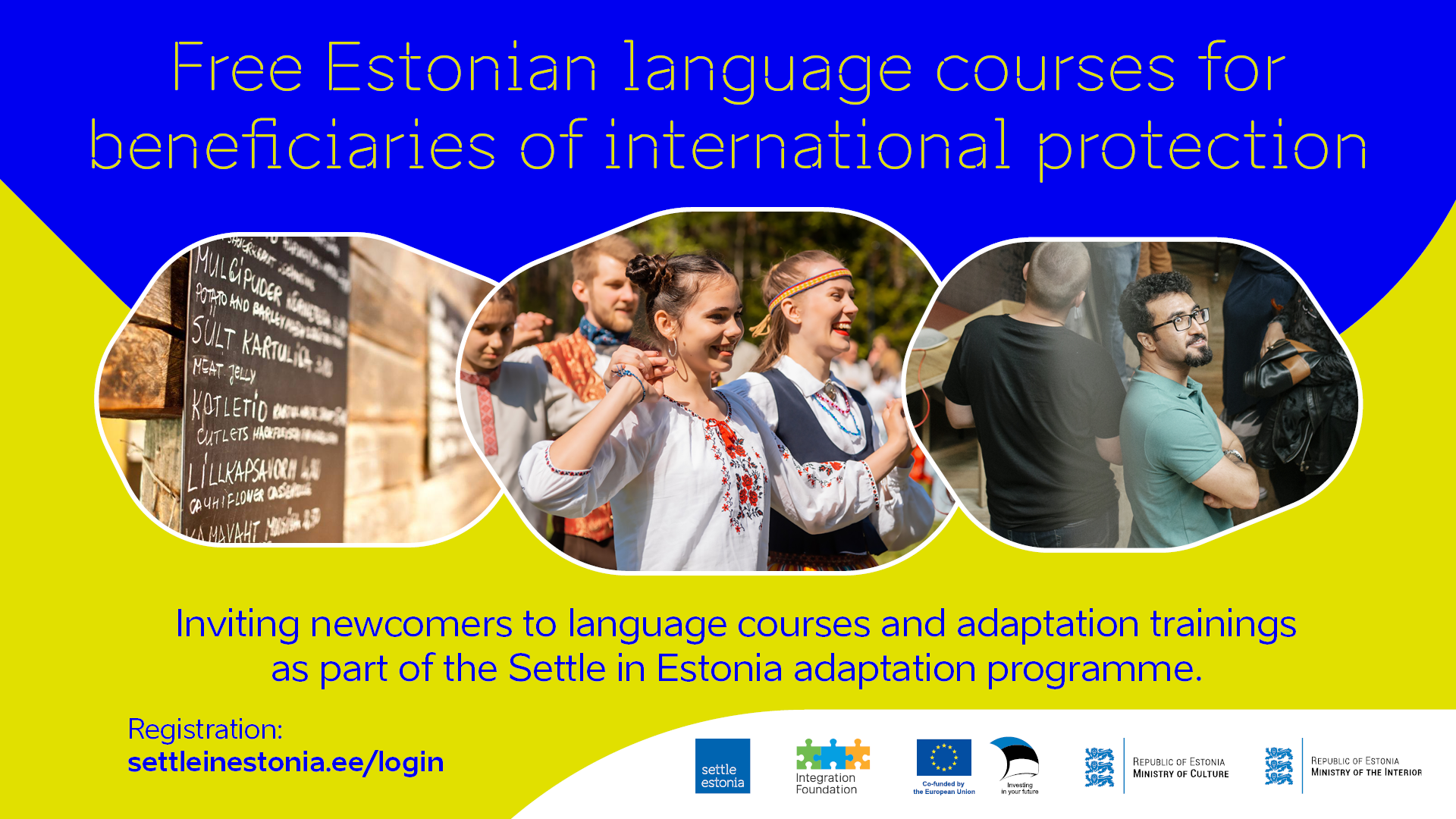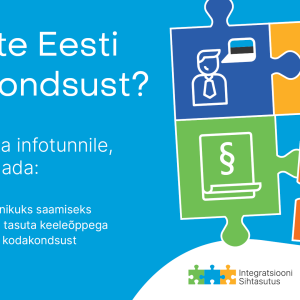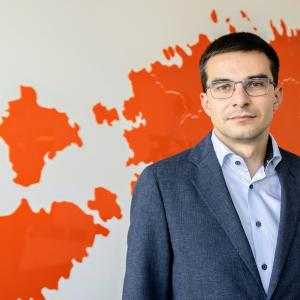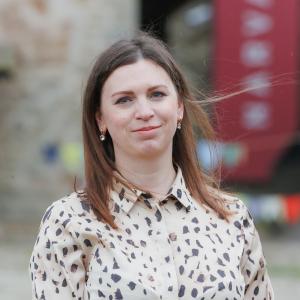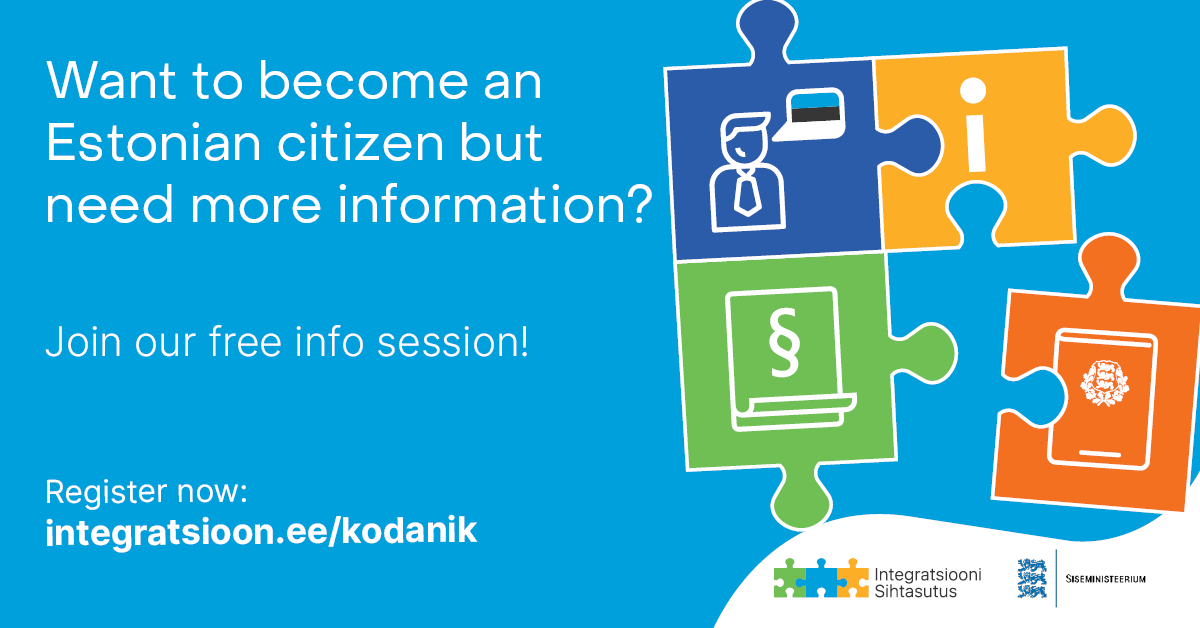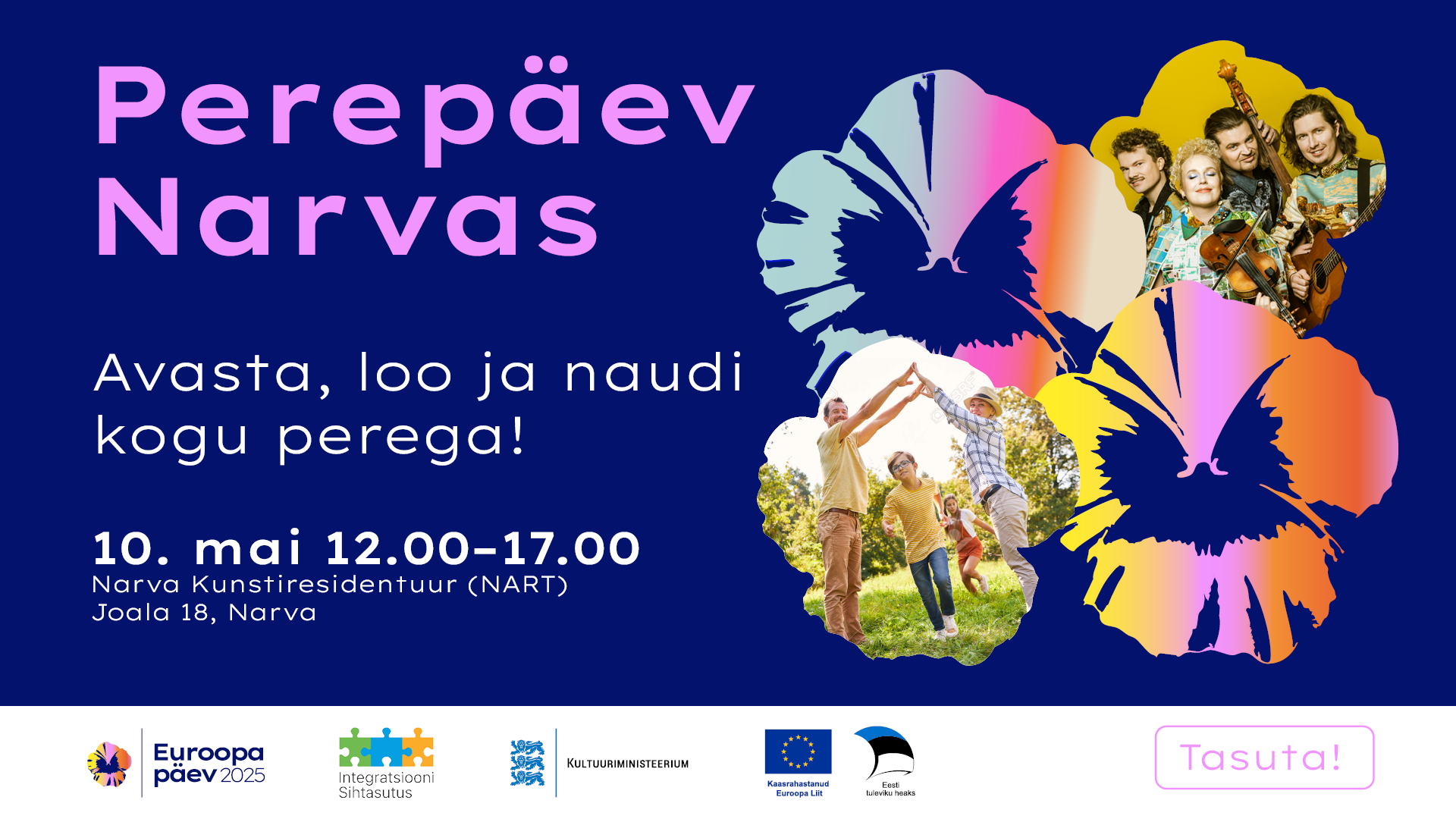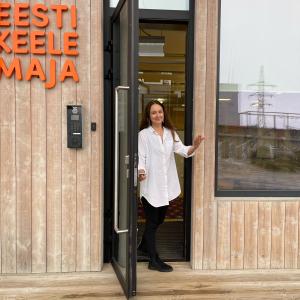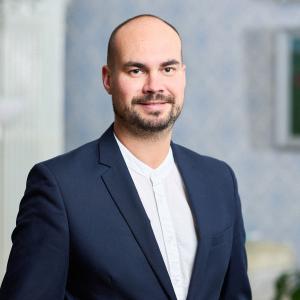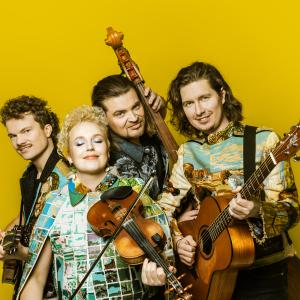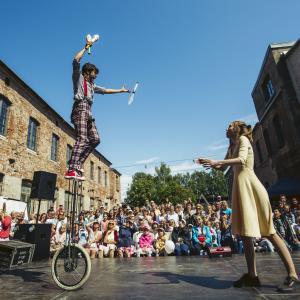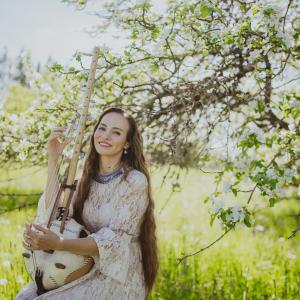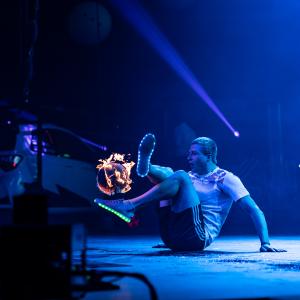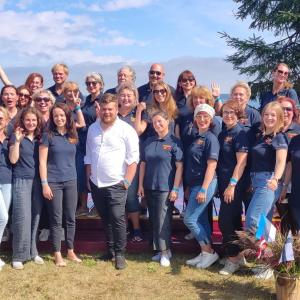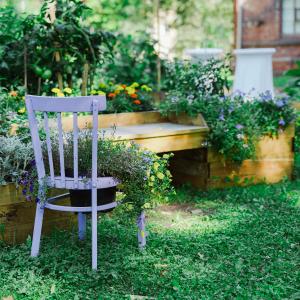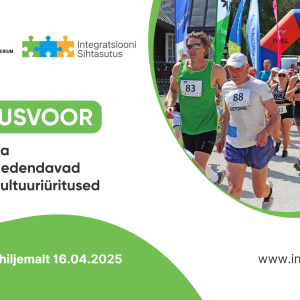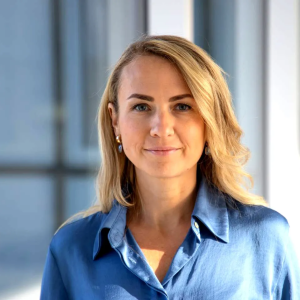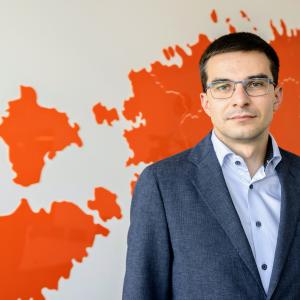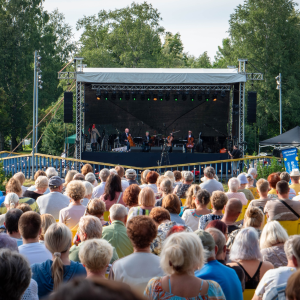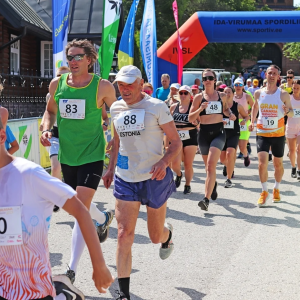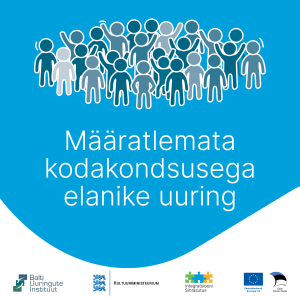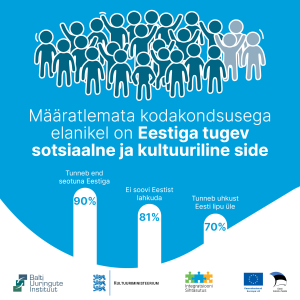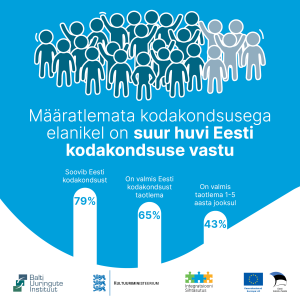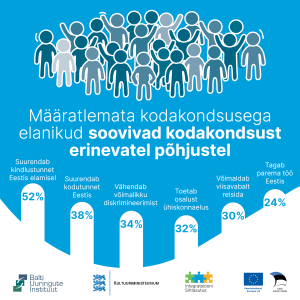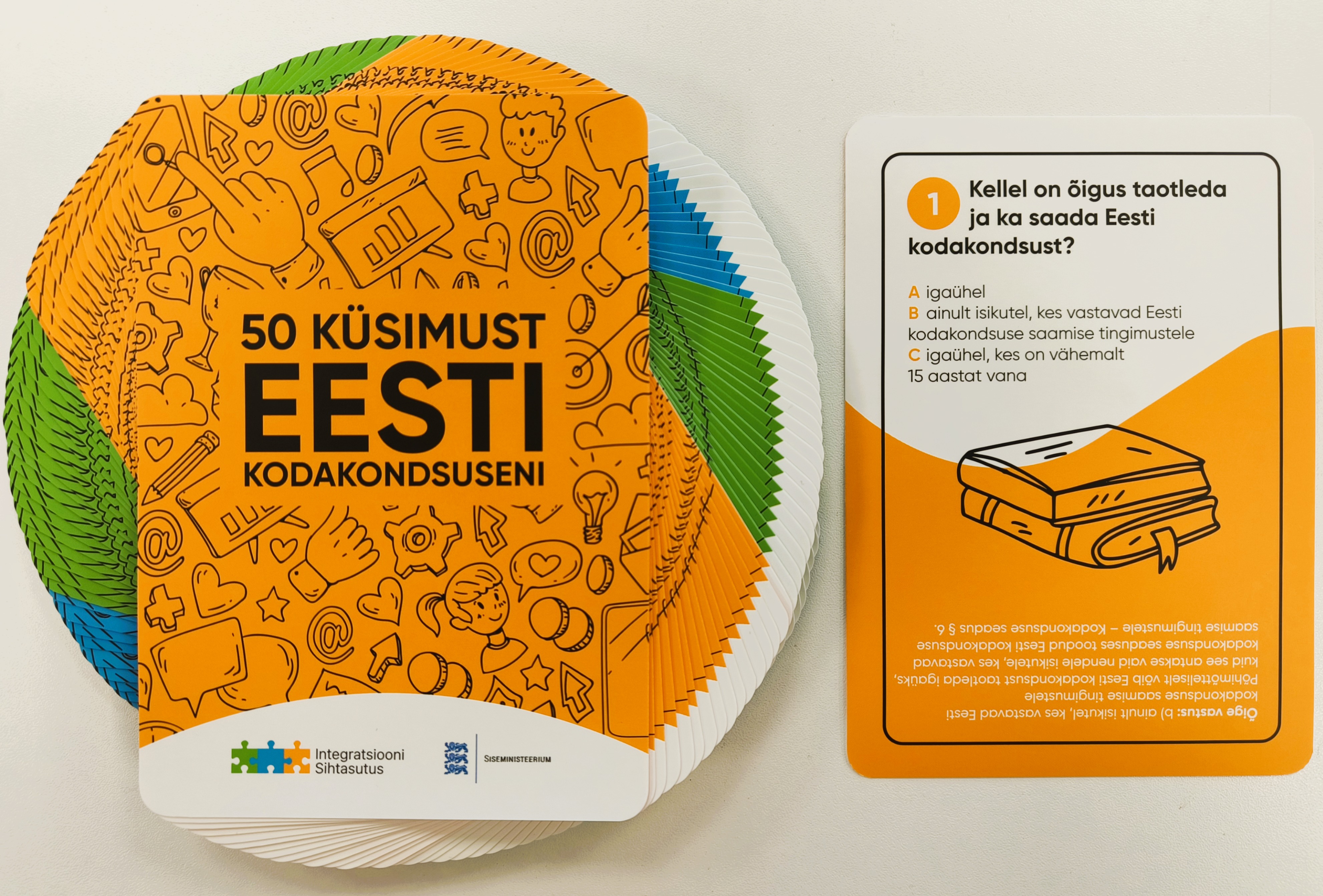For the sixth year running, the Integration Foundation offered Estonian language learners the opportunity to hold conversations with mentors – volunteers who speak Estonian at a native level. This year, the Language Friends programme featured the largest number of friends of Estonian ever: 1,018 learners and 981 mentors formed 1,023 conversation pairs of language friends.
‘These language friendships show the importance of taking the time to communicate with each other – we keep finding more and more in common, in terms of both our language and our ways of thinking. This spring, 1,999 people from Estonia and beyond have found as little as an hour per week to chat in Estonian about all sorts of things – the goings-on of their families, new experiences, current news, or books they have read. Through these dialogues, the learners have become more confident in their use of the Estonian language and both language friends come to understand each other better – and this way, the ties that connect us from the shores of Peipsi to Kihnu and from Keila to Tõrva have become stronger,’ said Ave Landrat, Head of the Language Friends programme and the Head of Partnerships at the Integration Foundation.
This year, 1,018 Estonian language learners participated in the Language Friends programme, joining through public sign-ups. A total of 981 mentors who volunteered for the programme helped them practise their Estonian. Conversations took place on all kinds of topics at least once a week – online, by phone, or face to face – to practise conversational language.
“The number of language friends growing year by year confirms how necessary it is for language learners to have the opportunity to converse in Estonian. It is a pleasure that they are supported by volunteers, many of whom have been participating for several years. We see that communication often continues after the program and turns into true friendship. Through such conversations and meetings, compatriots with different mother tongues find much more in common with each other than they previously thought. A big thank you to all the volunteers who have found time to support and encourage Estonian language learners,” said Dmitri Moskovtsev, Head of the Integration Foundation.
A team of coordinators brought the language friends together and helped them find the best solutions for their conversations. In addition, they supported the mentors with relevant advice and appropriate learning materials, drawing largely on their own previous experiences of participating in the Language Friends programme.
The Integration Foundation launched the Language Friends programme in 2020 to offer language learners an opportunity to continue practising their language online, as they were unable to participate in events for conversational language practice due to the state of emergency. To date, a total of 7,364 language learners have taken part in the programme.
We are implementing the Language Friends programme with the resources of the European Union’s Cohesion and Internal Security Funds for 2021–2027 and within the framework of project No. 2021-2027.4.07.23-0006 under Order No. 80 of the Minister of Culture of 15 March 2023 ‘Conditions for granting support for the implementation of activities supporting integration, including adaptation, in Estonian society’.
Overview of the sixth season of the Language Friends programme:

